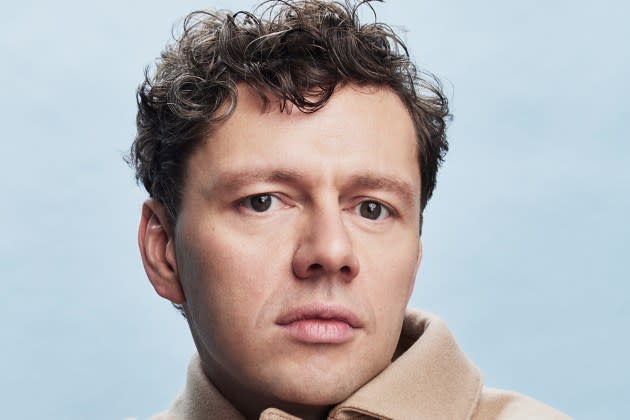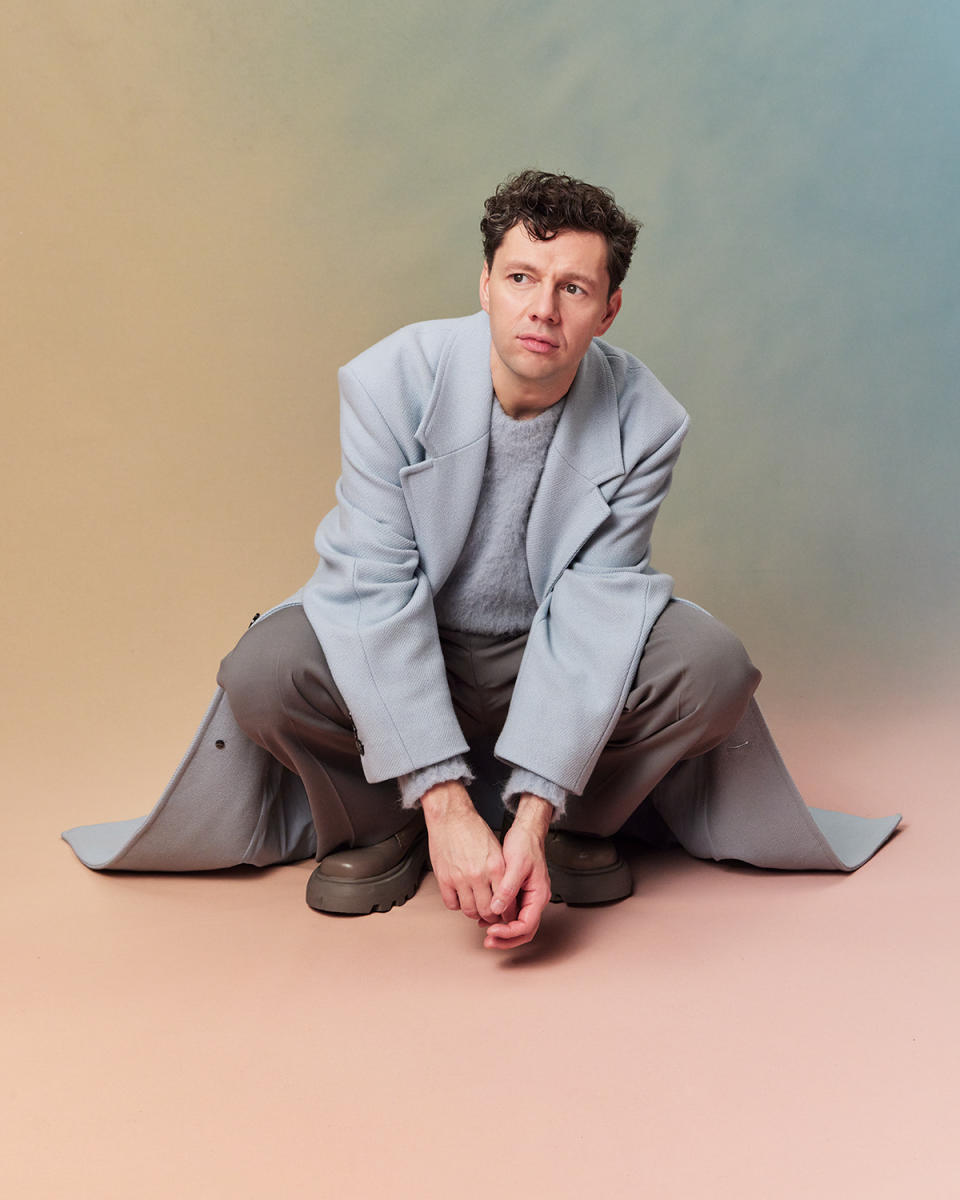‘Zone of Interest’ Star Christian Friedel Reflects on the ‘Intense Experience’ of Playing a Nazi
- Oops!Something went wrong.Please try again later.

German actor Christian Friedel melts into his roles, most recently as the commandant of Auschwitz in Jonathan Glazer’s “The Zone of Interest.”
The Dresden, Germany-based actor and musician fashioned Rudolf Höss as an executive on the rise: he’s a snappy dresser who’s efficient and knows how to get the most out of his employees and equipment —and how to suck up to his bosses. Except that he’s running a death camp and overseeing the murder of thousands of Jews and whoever else the Nazis didn’t like. He also oversees a large family run by his equally striving and efficient wife, Hedwig (played by Sandra Hüller, who’s having a great year — catch her in “Anatomy of a Fall”).
More from Variety
It’s a tough role, but on one Saturday at the London Hotel in West Hollywood, Friedel is dressed in casual chic clothes while his curly hair borders on rebellion, unlike the severe cut Höss sports.
“It’s really precise. It’s like a second skin in a way,” says Friedel of the haircut, noting that it was inspired by pictures of the real Höss, who was executed in 1947 for his crimes.
“There’s a rare photograph with a white suit. And Jonathan was fascinated [with it]. And then he said it needs to be in the movie,” Friedel says. Indeed, Höss dons the suit during a centerpiece garden party scene.
“It sounds sometimes like a cliche that German actors often play Nazis,” he says, noting that his first role was in Michael Haneke’s “The White Ribbon,” which was set before WWI but has a connection to Nazi Germany. But the versatile artist has played Jewish characters, a gay man in Netflix’s series “Babylon Berlin” and fronts a rock band, the Woods of Birnam. “It’s indie pop inspired by Radiohead,” he says (check them out on YouTube and Spotify).

“In this political system, Höss has power. He has the chance to be someone else but in another system, he could be working for a car company. He’s a nobody. Just an ordinary boring man,” the actor notes.
Indeed, the film never exposes the horrors of Auschwitz, but we hear screams, the roar of the furnaces and see the smoke bellowing out of the crematoriums, which makes it all the more sickening.
Friedel’s challenge was to give the character a human face. “Because every character I play, I want to give all of them a human face, but he was more complicated because we are looking through a window — we observe this character, but we never see him act like a perpetrator. We see him in ordinary situations — as a father, interested in nature and so on. And I think this was a challenge to have all these familiar pictures in my mind, this darkness in my mind, coldness in a way, but not to share this, keep it in my subconscious and find a way to create a truth.”
Friedel adds: “Sometimes I described this shoot as a search because we were searching for truth, for believable situations. To figure out what’s behind the surface, under the surface,” and making audiences relate to the character’s feelings and situations. “So this is shocking in a way.”
He got the role by sending in a self-tape to Glazer. He was asked to describe himself and why he wanted to be an actor (he’s always wanted to be an actor and musician since he was a kid and entertaining his schoolmates). “But without knowing the potential role, without knowing the project, only knowing it’s a new movie of Jonathan Glazer. I decided to do it in German because it felt more natural.” He was the only person to do his self-tape in German. “Maybe this was a door opener… Jonathan said to me, ‘I don’t understand a word, but I understand your feeling.’”
He tested with Hüller and then Jonathan asked me, ‘Do you want to be part of this movie?’ So I said immediately, ‘Oh, absolutely.’”
They started production but COVID interrupted the filming for a year, and Friedel took the opportunity to learn to horseback ride, as the real-life Höss was an expert rider.
But because of the unusual way it was filmed — 10 cameras placed around the Höss house, some hidden — Friedel says there had to be a high level of spontaneity as well.
“We came to the set. It was all prepared. There were no technicians on set. And we had no rehearsals for the scenes. And we started immediately with the first impulse,” he says. “It’s great for this specific situation being observed from 10 cameras, sometimes simultaneously or shooting scenes in different rooms. So that was a luxury situation, and it was great.”
His connection with Hüller, his co-star in Jessica Hausner’s “Amour Fou,” was vital to making the film work. “We had from the beginning, a connection. I don’t know — maybe because we both grew up in East Germany. But there was a connection of trust,” he says. “And that was really helpful to create this couple and to find a common rhythm.”
Friedel’s music helped him cope with the intense character and situations in the film, but he is still processing the experience. “We had to be fearless,” he says. “It was not easy to protect myself, in a way. And then I had the feeling, oh my God, that was an experience I’ll never forget. But I’m really grateful about this experience. I learned a lot as an actor and as a human being. But it was an intense experience.”
With that, Hüller pokes her head around the corner, summoning Friedel for their next stop on the awards campaign road.
Clothing: sweater, jacket, pants, shoes: AMI Paris
Best of Variety
Sign up for Variety’s Newsletter. For the latest news, follow us on Facebook, Twitter, and Instagram.

